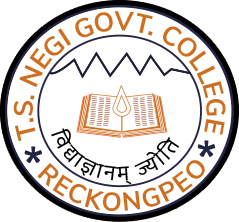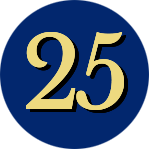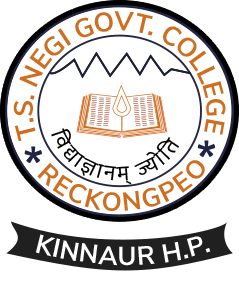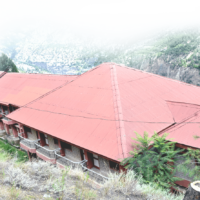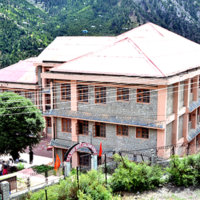Departments: English
About Department
The Department of English has been the window to the growth and development in all walks of life, to the simple and hardworking students of this remote, distant tribal area. The Journey of the department has been that of difficult and challenging one as the language proficiency and skill of the majority of the concerned students has not been as per the required level due to the lack infrastructure and the insufficient human resource to provide with the required fillip to the teaching and learning of English Language in particular and English literature in general. However as the saying goes that every challenge comes with innumerous opportunities, this department has been working hard to develop the skill and interest of the students for English language and literature. The students in this department have always been encouraged to participate actively in the activities where they get an opportunity to bring out their latent skills and potential. Besides these activities Bridge Course, Conferences, Seminars, Workshops, Special Lectures, Remedial Programme, and the Certificate Course in communication in English and Soft skills are conducted to give the students access to capacity building, acquiring competency, and confidence building in the concerned language in particular and overall development in general.

The department has a club, Nawachar, which has been a very important platform for the students and the staff for voicing their ideas and innovative critical thinking and out of the box perspectives. Curriculum is designed as per the changing requirement of the society and environment which contains the aspects of skill development, entrepreneurship and employability and reverence and true understanding of Mother Nature and rich cultural heritage of this tribal area. Technology-Integrated and assisted Teaching learning is promoted so that the students may not feel alien to the ever-changing world order and the teaching learning developments in the other more eminent colleges in the country and the world. Extra classes are conducted for the slow learners and the advanced learners to bridge the gap among the students. Peer learning, mentoring (with proper Mentor Mentee ratio) and value education, student-centric participatory learning and proper grievance redressal further ensure the holistic development of students The curriculum design and delivery is planned as per the standard Graduate Attributes for example, sound subject knowledge, application of concepts and theories, multicultural outlook , value for diversity, communication skills, digital skill and literacy, mental flexibility and the attitude of resilience, attitude for team work, leadership skills, Entrepreneurial skill, great Zeal for learning to learn, unlearn and relearn. The various levels of Bloom’s Taxonomy has been taken into account to structure the learning objectives, lessons, and assessments of the students in the prescribed course
Message of the HOD
The onus and the responsibility to make the Nation and the life full of opportunities for expansion in all walks of life, lies with the students with strong will and determination to put in their best for the service of the Nation and the humankind. The students are appreciated and invited to come up with out of the box ideas and innovative plans to work in the spheres of Education, Environment, sustainability, waste management, E-waste-management and reuse and recycling of plastic waste for the effective implementation of Govt. plans and initiatives. The Department does not encourage rote learning for just securing good marks in the examinations but rather motivates the students to experiment with the experiential and participative learning to achieve the desired outcomes. The advanced learners are advised to enroll for various online programmes and courses like SWAYAM and NPTEL for their potential growth and to justify their talent to horn their innate skill and competence. The slow learners, on the other hand, are motivated to attend extra classes and remedial classes and other effective online resources are consulted and referred to enhance the competency of the students to come at par with other students. There is a robust Mentor –Mentee mechanism to solve the issues of the students and all the stakeholders to maintain a proper academic atmosphere in the campus and to have a strong connection between the faculty and all the other concerned stakeholders. The students are inculcated into responsible and sincere human beings by including Moral values and ethical way of living in the curriculum and imparting the same to the students without being didactic and forceful rather internalizing in the process of pedagogy and andragogy. The Practice of Yoga and the healthy art of living are internalized and institutionalized among the students to channelize the indomitable energy of the students and to guide them to realize their full potential by managing their routine with proper monitoring and feedback. The Department of English welcomes all the students in the Abode of infinite possibilities and opportunities to work upon our innate wisdom to spread joy and peace in the whole world.
– Sh. Rajesh Kumar(Assistant Prof. Department of English)
Vision of Department
Achieving the status of an Abode of Learning, Unlearning and Relearning, where the young and aspiring minds are encouraged and educated to communicate and understand the virtue of compassion and the true nature of all aspects of the world to realize and explore the human potential and excellence for complete growth, in harmony with Mother Nature, to develop all inclusive attitude for the service of the humanity and the world.
Mission of Department
-
To add Environment awareness as an integral part of curriculum in all the courses of English Department for emphasizing the need to understand the Environmental diversity for sustenance and the survival of the humankind and the untamed prospects of reuse and recycling of resources and consumer products for the efficient management of available resources.
-
To measure and evaluate the learning outcomes of the English programme and courses with strong focus on the character development and awareness of the value of harmonious relationship with Mother Nature.
-
To include the various dimensions of Soft skill and the life skill in the curriculum delivery to ensure to see that the students may imbibe the communication skills and become Emotionally intelligent to grow as an effective individuals to realize their true potential for the service of the world.
-
Provide suitable curricular support to the students.
-
Mentoring, tutoring, focus on research and academics and innovative teaching methods to facilitate employability
-
To empower students with language skills and soft skills
-
To introduce the nuances of teaching and learning
-
To encourage the students with hands-on experience in the domain of teaching in classroom
-
To get students acquainted with the recent trends and theories of English Language and Literature
-
To expose the students to the philosophy and mechanics of recent trends in pedagogy with innovative use of teaching learning tools.
-
To familiarize them with the theories of literature, and help them acquire both theoretical thrust and hands-on experience in understanding the very basis of acquisition of language and the use of practical ways of acquiring the skill.
-
To introduce the use of ICT and online resources to create interest and inclination of the students for language learning and literature reading.
-
To innovate with flipped classroom and blended classroom to enhance the efficacy of teaching learning in this modern era of ICT revolution and to cater to the ever evolving expectations of the students.
-
To instill the principles of social responsibility among the students to empower them with the necessary skills to face the adverse times in their lives.
-
To uphold the approach of all –inclusiveness and compassion by creating the conducive and congenial environment for learning, unlearning and relearning the true purpose and meaning of life.
-
To facilitate and provide with a suitable pedagogy to the slow learners and the advanced learners to bridge the gap among the students and to offer the courses in line with the natural abilities and capabilities of the students.
-
To nourish and nurture the young minds to explore their full scope and potential by giving them all possible curricular and extra- curricular support.
-
To introduce certificate courses of emotional Intelligence and soft skills to inculcate the problem solving and team work skills among the students for the holistic development of all the students.
- Remembering: Retrieving, recognizing, and recalling relevant knowledge from long‐term memory.
- Understanding: Constructing meaning from oral, written, and graphic messages through interpreting, exemplifying, classifying, summarizing, inferring, comparing, and explaining.
- Applying: Carrying out or using a procedure for executing, or implementing.
- Analyzing: Breaking material into constituent parts, determining how the parts relate to one another and to an overall structure or purpose through differentiating, organizing, and attributing.
- Evaluating: Making judgments based on criteria and standards through checking and critiquing.
- Creating: Putting elements together to form a coherent or functional whole; reorganizing elements into a new pattern or structure through generating, planning, or producing.
| Sr.No. | Bloom’s Level | Key Verbs (keywords) | Example Learning Objective |
|---|---|---|---|
| 1. | Create | Design, formulate, build, invent, create, compose, generate, derive, modify, and develop. | At the end of this course the student will be able to compose a creative piece of article on the social and moral disintegration in the society and will develop possible ways and ideas to deal with the social problem more efficiently to create an environment of trust and co-existence. |
| 2. | Evaluate | Choose, support, relate, determine, defend, judge, grade, compare, contrast, argue, justify, support, convince, select, evaluate. | At the end of this chapter the students will be able to determine the impact of the story on the readers and also compare the implications of lack of understanding in relationships. |
| 3. | Analyze | Classify, break down, categorize, analyze, diagram, illustrate, criticize, simplify, and associate. | At the completion of the lesson of the forms of literature the students will be able to classify the difference between different literary forms and also associate the intertextulity in literature |
| 4. | Apply | Calculate, predict, apply, solve, illustrate, use, demonstrate, determine, model, perform, present. | At the end of the lesson on the use of Determiners the students will be able to use the determiners at their appropriate places and demonstrate the value of the determiners in applied grammar. |
| 5. | Understand | Describe, explain, paraphrase, restate, give original examples of, summarize, contrast, interpret, discuss. | At the completion of the course the students will be able to describe the summary of the short story “ Dinner for the Boss” |
| 6. | Remember | List, recite, outline, define, name, match, quote, recall, identify, label, recognize. | At the end of the lesson the students will be able to recite the poem “Blow Blow thou Winter Wind” and outline the main points of the poem. |
Programmes Offered
Under Graduate Level
